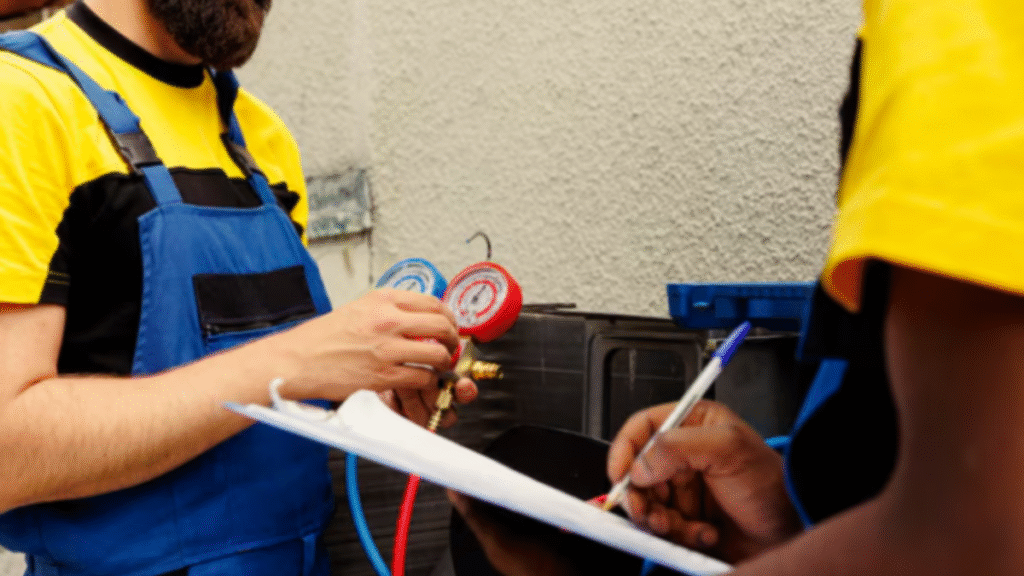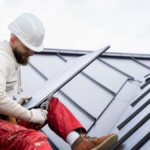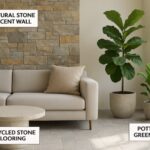Every heating and cooling system has a lifespan, and knowing when to replace it can prevent frustration, high energy costs, and discomfort. Over time, even well-maintained units can lose efficiency, struggle to maintain a consistent temperature, and require more frequent repairs. Recognizing the warning signs early helps homeowners make proactive decisions rather than waiting for a complete breakdown to occur. A new system not only improves comfort but also reduces energy usage and enhances air quality. Understanding the key indicators of HVAC failure can make the difference between another costly repair and a wise long-term investment in your home’s climate control system.
Recognizing Signs of Diminishing Efficiency
As HVAC systems age, they naturally become less efficient. You may notice that your energy bills are steadily increasing, despite maintaining consistent usage habits. This often means the system is working harder to produce the same results due to wear and tear, as well as declining performance. Unusual temperature fluctuations or uneven heating and cooling are other early warnings that efficiency is fading. When filters and ducts are clean but airflow remains weak, internal components, such as compressors or coils, may be deteriorating. Frequent cycles or constant operation signal that the system is struggling to meet demands. Paying attention to these performance shifts helps determine when replacement is the more cost-effective choice.
When Repairs Become Too Frequent
At first, occasional repairs might seem manageable, but when they start happening more than once a year, it’s often a sign of deeper issues. An HVAC unit reaching the end of its lifespan will experience component failures more regularly, causing costs to accumulate quickly. Instead of pouring money into continuous repairs, replacement often provides a more reliable and energy-efficient solution. A trusted HVAC company in Humble, TX can assess the condition of your current system and provide recommendations based on performance, repair frequency, and age. Their evaluation helps determine whether the system still has a few good years left or if upgrading now will save you more in the long run.
Age and System Lifespan Considerations
Most HVAC systems last between 10 and 15 years, depending on factors such as usage, maintenance, and environmental conditions. As the unit ages, its efficiency declines, and newer technologies quickly surpass older models in terms of energy performance. Homeowners often underestimate the rise in operating costs during the final years of an aging system. Once a unit nears or exceeds its expected lifespan, replacement should be strongly considered, even if it still functions properly. Older systems use outdated refrigerants and lack the energy-saving features of modern models. By upgrading before failure, you can enjoy improved performance, quieter operation, and lower bills without the inconvenience of a sudden breakdown during extreme weather.
Fluctuating Comfort and Temperature Inconsistencies
If you notice that certain rooms feel too warm while others remain cold, it might not just be a duct issue—it could be that the HVAC system itself is losing its ability to maintain balanced airflow. A healthy system distributes conditioned air evenly throughout your home, but older units often struggle to sustain pressure and efficiency. This inconsistency causes discomfort and drives energy waste as the system cycles more frequently to compensate for the imbalance. Replacing an outdated unit restores steady comfort and performance. A properly sized new system not only maintains even temperatures but also enhances humidity control, improving overall indoor comfort and air quality.
Excessive Noise and Unusual Smells
Changes in sound and smell can indicate that an HVAC system is nearing the end of its serviceable life. Grinding, rattling, or buzzing noises often stem from failing components such as motors, fans, or loose parts. Similarly, burning or musty odors may suggest electrical issues or moisture accumulation within ducts. While minor noises can be addressed, persistent sounds or smells typically indicate more significant issues. Continuing to operate such a unit increases the risk of further damage or safety hazards. Replacing the system ensures quieter, cleaner operation and reduces the chances of unexpected failures that could compromise both comfort and safety in your home.
Rising Energy Bills and Environmental Impact
When energy consumption increases even after routine maintenance, it’s a strong indication that the system is no longer operating efficiently. Older units draw more power to achieve the same cooling or heating effect, which inflates utility bills month after month. Modern HVAC systems are designed with higher energy efficiency ratings, which significantly lower operational costs and reduce their environmental footprint. Upgrading to a new model not only saves money but also aligns with sustainable living goals. The reduced energy demand benefits both your home and the environment, providing long-term savings and reducing strain on power resources without sacrificing comfort.
System Compatibility and Technological Advancements
Modern HVAC systems offer features that older units simply can’t match, such as smart thermostats, zoning control, and improved refrigerants. If your current setup lacks these technologies, it may be limiting your ability to optimize comfort and efficiency. Upgrading ensures compatibility with innovations that make heating and cooling more responsive to your needs. These advancements also provide better energy monitoring and maintenance tracking. A replacement system can integrate seamlessly with home automation tools, giving you greater control over temperature and humidity settings. Embracing these updates enhances daily comfort while reducing operational costs and maintenance demands over time.
Long-Term Financial Benefits of Replacement
Although the upfront cost of replacing an HVAC system may seem significant, the long-term financial benefits are substantial. Reduced repair frequency, lower energy consumption, and improved performance quickly offset the investment. Newer systems often come with extended warranties, offering added peace of mind and fewer unexpected expenses. Additionally, the resale value of a home increases when it features a recently installed, energy-efficient HVAC system. This upgrade assures potential buyers that the house is comfortable and cost-effective to maintain. Replacing your system before it fails helps avoid emergency costs and provides steady, reliable comfort for years to come.
Knowing when to replace your HVAC system requires paying attention to signs of inefficiency, frequent repairs, and inconsistent comfort. Age, noise, and rising energy bills are clear indicators that it may be time for an upgrade. While repairs can temporarily prolong a system’s life, replacement ensures improved performance, reduced maintenance, and long-term savings. Partnering with qualified professionals ensures proper installation and selection of the right system for your home. Investing in a new HVAC unit not only enhances comfort but also contributes to energy conservation and overall value. The decision to replace is ultimately one that brings reliability and peace of mind.







